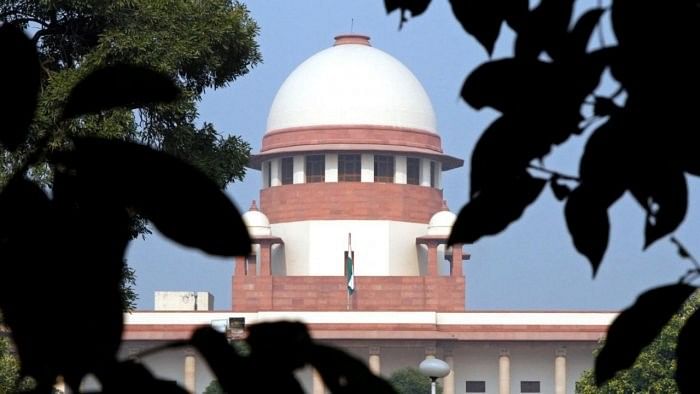
Supreme Court
Credit: PTI Photo
The Supreme Court was on Wednesday told that autonomy of states is fundamental to the Constitution and diversity needs to be treasured and not wished away for the quest of uniformity.
Senior advocate Rajeev Dhavan, arguing on behalf of the Jammu and Kashmir People’s Conference, Wednesday, said that powers under president’s rule cannot be used to amend the Constitution.
He made the submission against the dilution of Article 370 before a five-judge constitution bench headed by Chief Justice of India D Y Chandrachud and comprising Justices Sanjay Kishan Kaul, Sanjiv Khanna, B R Gavai, and Surya Kant. Dhavan submitted that autonomy is fundamental to the Constitution and without provisions outlining the autonomy given to states, India would have collapsed.
He said the quest for uniformity is not at the heart of the Constitution.
"Kashmiri is recognised as an official language under the Eighth Schedule of the Constitution and asked, what is the status of Kashmiri now? Has it disappeared from the Eighth Schedule," he asked.
Referring to Article 239A of the Constitution (Parliament’s power of creation of local legislatures or Council of Ministers or both for certain union territories), Dhavan said it was not adhered to while converting the Jammu and Kashmir into two union territories – one with a state legislature and one without it.
He also contended that powers under Article 356 (President’s Rule) have been repeatedly misused and it is not a power given to amend the Constitution. He said J&K is not a dead horse to be flogged and it is very important to understand autonomy in Indian federalism.
The bench, for its part, asked Dhavan, suppose the President in a proclamation suspends the operation of any provision of the Constitution, could that be challenged on the ground that it is not incidental or supplemental? Or are these words widening the ambit of the first part of Article 356(1)(b) of the Constitution?
Dhavan responded that power exercised under Article 356(1)(c) of the Constitution cannot dilute a mandatory provision given under Article 3 (Parliamentary procedure to form new States).
The court, however, said such a broad proposition may not be acceptable as there may be situations which had to be accounted for.
The bench sought to know from Dhavan if Parliament can enact a law during subsistence of Article 356? Can Parliament not exercise powers specifically granted to state legislatures, like altering the boundaries of the state, it asked.
Dhavan emphasised that Article 370 was a part of basic structure, which cannot be breached.
Senior advocate Dushyant Dave, also for petitioners, contended constitutionalism would trump any argument of national interest which could be advanced by the Centre. He asked the court to lay down a law in this regard.
